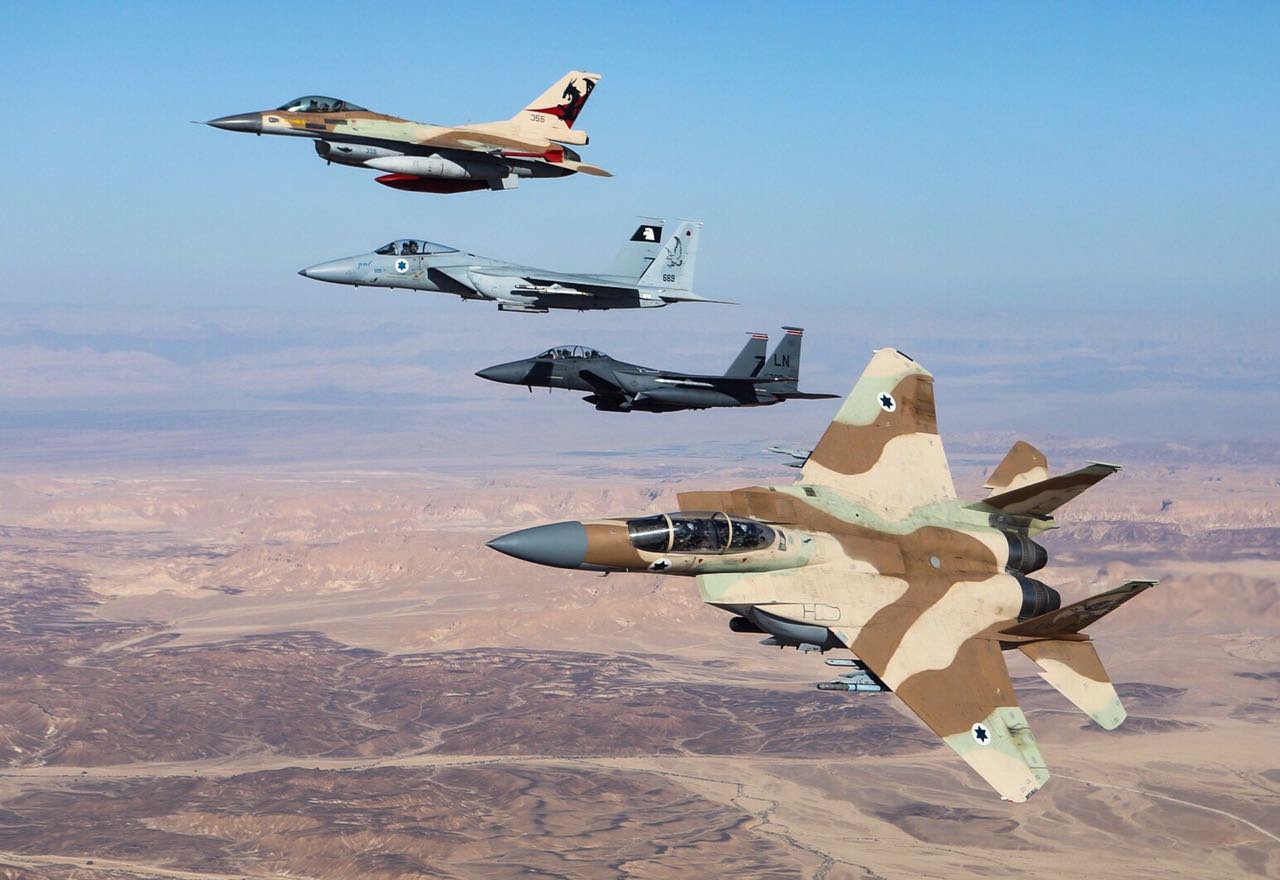Publications
Policy Paper, September 27, 2023

Israel should seek to conclude a defense treaty with the United States, limited to extreme and existential threats within the Middle East.
The Facts
There are growing reports of progress toward a possible normalization of relations between Saudi Arabia and Israel, as part of a broader set of agreements between Saudi Arabia and the United States. Recent talks between Washington and Riyadh raised the possibility that the two countries might sign a defense treaty, which is one of Saudi Arabia's demands. This in turn raises once again the question of a defense treaty between Israel and the United States, on the assumption that it would be difficult for the United States to provide such a security guarantee to Saudi Arabia alone.
A defense treaty expresses a mutual commitment to the security of two or more countries. Japan, South Korea, Australia, New Zealand, the Philippines, and 31 NATO members have signed defense treaties with the United States, though there are significant differences between them. The last bilateral treaty signed by the United States (as opposed to the expansion of the NATO alliance) was with Japan in 1960. Since then, the United States has refrained from taking on this supreme strategic commitment and has only provided more limited security guarantees.
Israeli Prime Minister David Ben-Gurion sought to sign a defense treaty with the United States as early as the 1950s. Since then, Prime Ministers Rabin, Peres, and Barak have considered this a form of security and political compensation for Israel, in exchange for the concessions that would be involved in peace agreements with the Palestinians or Syria, and a way to mitigate the price of the concessions among Israeli public opinion. Prime Minister Netanyahu also raised the idea September 2019 Israeli election. Nonetheless, the security establishment has traditionally objected to a defense treaty.
Significance
A defense treaty between Israel and the United States would be the ultimate expression of the "special relationship," formally establishing the relationship as part of their national strategies and ensuring its longevity. A defense treaty with the United States would strengthen Israel's deterrence against its rivals and deepen their awareness of the long-term American commitment to Israel’s existence, potentially necessary guarantees in the event that Iran goes nuclear and even more so should a Middle East with multiple nuclear actors emerge.
The opposition to a defense contract with the US rests primarily on the fear that Israel will lose its freedom of action and would be bound by a reciprocal commitment to assist the United States around the world and support its global policy, for example, toward China, Russia, and Ukraine. However, in practice, the cooperation between Israel and the United States is already so deep that Israel rarely takes any military or political actions of consequence without first consulting with the United States, and in practice, seeking its approval. Already today Israel supports the United States’ global policy. As an official ally, Israel's access to advanced American weaponry and unique technologies would be guaranteed for the long term, thereby maintaining Israel’s qualitative military edge over time.
Policy Recommendations
Saudi Arabia’s demands for a defense treaty with the United States create a window of opportunity for Israel, as well. Israel should seek to conclude a defense treaty with the United States as part of a coherent strategy designed to address the challenges of the future, especially a nuclear Iran and the possible emergence of a Middle East with multiple nuclear actors.
More importantly, a defense treaty would cement Israel’s long-term "special relationship" with the United States, which constitutes a central pillar of Israel's national security. This relationship is already under strain today due to the increasingly corrosive impact of Israel's policy on the Palestinian issue, as well as tectonic demographic trends in the United States, especially in liberal circles. A defense treaty will make it easier to ensure bipartisan support for Israel and future administrations’ commitment to its security.
In the rapidly changing strategic circumstances now underway in the Middle East, Israel should take advantage of the defense treaty to promote a US-led regional strategic architecture. The establishment of such a regional strategic architecture would alleviate the concerns of United States allies regarding diminishing American involvement in the region.
Israel does not need a defense treaty with the United States to deal with Hezbollah, Hamas, and terrorist threats, and the United States would not want to take upon itself an obligation to deal with them either. Therefore, to maintain Israel's freedom of action in the face of these threats, and so that it is not required to be directly involved in the United States’ global wars, the content of the treaty should be limited to extreme and existential threats and to the Middle East region, much as United States treaties with Japan, South Korea, and Australia are limited to their arenas.
The treaty must anchor the US commitment to Israel's qualitative military advantage (QME) and address the issue of future military aid. Israel must ensure that the parties' rights to act in self-defense and according to their legal processes are preserved, as is customary in these treaties, thereby leaving an opening for some independent action in exceptional cases.
Like other allies, Israel would be free to decide the nature of its military contribution to the United States’ efforts in the world, should this be required. Assistance in areas such as medical aid, civil defense, and air defense would be appropriate. The negotiation of the treaty creates an opportunity to raise both the issue of defense industry cooperation and Israel's place in the technological alliances that the United States promotes in the world.


